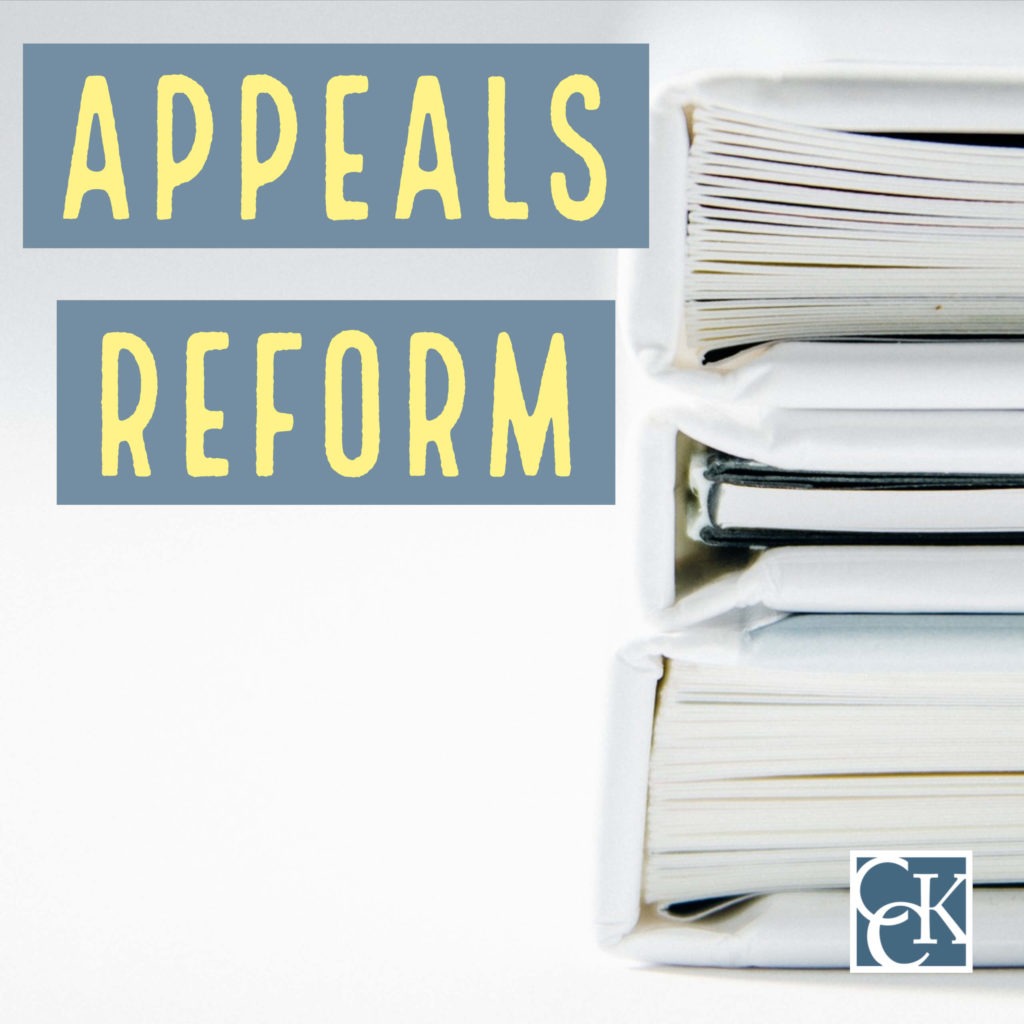Appeals Reform Notice of Disagreement vs. Legacy Appeals System Notice of Disagreement

CCK Law: Our Vital Role in Veterans Law
Generally speaking, a Notice of Disagreement (NOD) is a formal statement letting VA know that you disagree with its decision on your disability claim. The NOD form is included in the paperwork that comes with your decision letter from VA. However, the NOD process changes entirely under Appeals Reform.
Legacy Appeals System: NOD
In the Legacy appeals system, veterans have one year from the date of the notice of action letter to file an NOD upon receipt of a Rating Decision. To do so, veterans must complete VA Form 21-0958. On this form, veterans will indicate the specific issue(s) of disagreement, the area of disagreement (i.e. service connection, effective date of award, evaluation of disability, or other), and the percentage evaluation sought. Additionally, veterans must select one of two choices for how VA reviews the NOD:
- Decision Review Officer (DRO). A DRO is a senior-level employee at VA who handles post-decision appeals of disability award decisions. If this review option is selected, a DRO will review the original claim for VA benefits along with any new evidence and information included with the NOD. Veterans also have the option to request a hearing during which they can communicate directly with the decision-maker on the case.
- Traditional Review. A traditional review is completed by the same adjudicator who initially issued a denial of the claim.
Importantly, an NOD is filed with the Agency of Originally Jurisdiction which issued the denial of your claim. Therefore, an NOD under the Legacy appeals system results in a second round of review at the Regional Office level. If the NOD confirms the initial denial in your case, you will receive a Statement of the Case. From here, veterans will have 60 days to file a VA Form 9 Substantive Appeal, at which point their appeal will go to the Board of Veterans’ Appeals for review.
Appeals Reform: NOD
Under Appeals Reform, veterans have the option to opt in to the Notice of Disagreement lane following an unfavorable decision. Similar to the Legacy appeals process, veterans have one year from the date of the notification letter to file an NOD following receipt of an initial Rating Decision. However, VA will require a new form in order to do so (i.e. VA Form 10182). On this form, veterans must identify the specific determination with which disagree, and indicate if they request to have a hearing before the Board, an opportunity to submit additional evidence, or neither. This reflects the most significant difference between the NOD process under Appeals Reform and the NOD process in the Legacy appeals system. Specifically, in the NOD lane under Appeals Reform, veterans can appeal their cases directly to the Board following an unfavorable decision from the Regional Office, or an unfavorable decision in either the higher-level review lane or supplemental claim lane. As such, they are able to skip the second level of review at the Regional Office that is involved in the Legacy appeals system.
Similar to the Legacy appeals system, Appeals Reform proposes a process for clarifying NODs if need be. When the Board receives an unclear or deficient NOD, the Board will notify the veteran and request clarification. The veteran must respond with the requested clarification within one year from the Agency of Original Jurisdiction decision, or 60 days after the date of the Board’s clarification request, whichever is later. If the veteran does not provide a timely response, his or her previous statement will not be considered an NOD. Furthermore, veterans are allowed to file multiple NODs within the one-year period for other claims which they have pending.
About the Author
Share this Post
